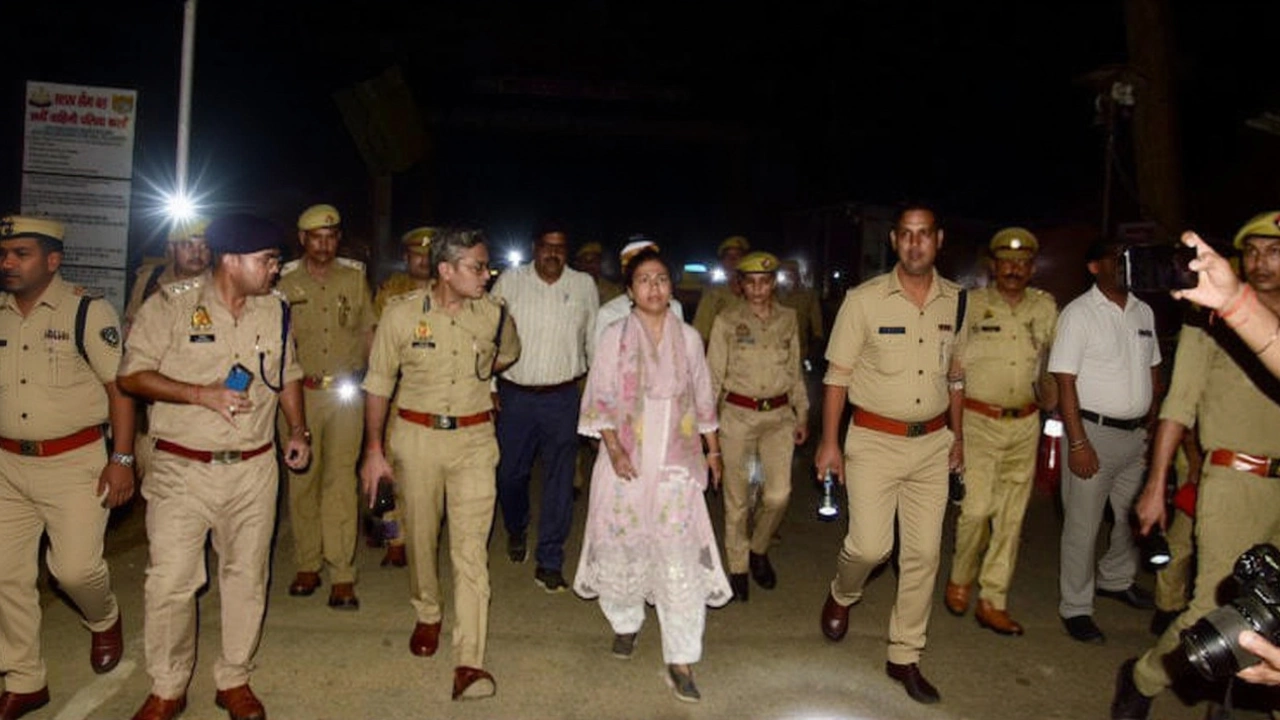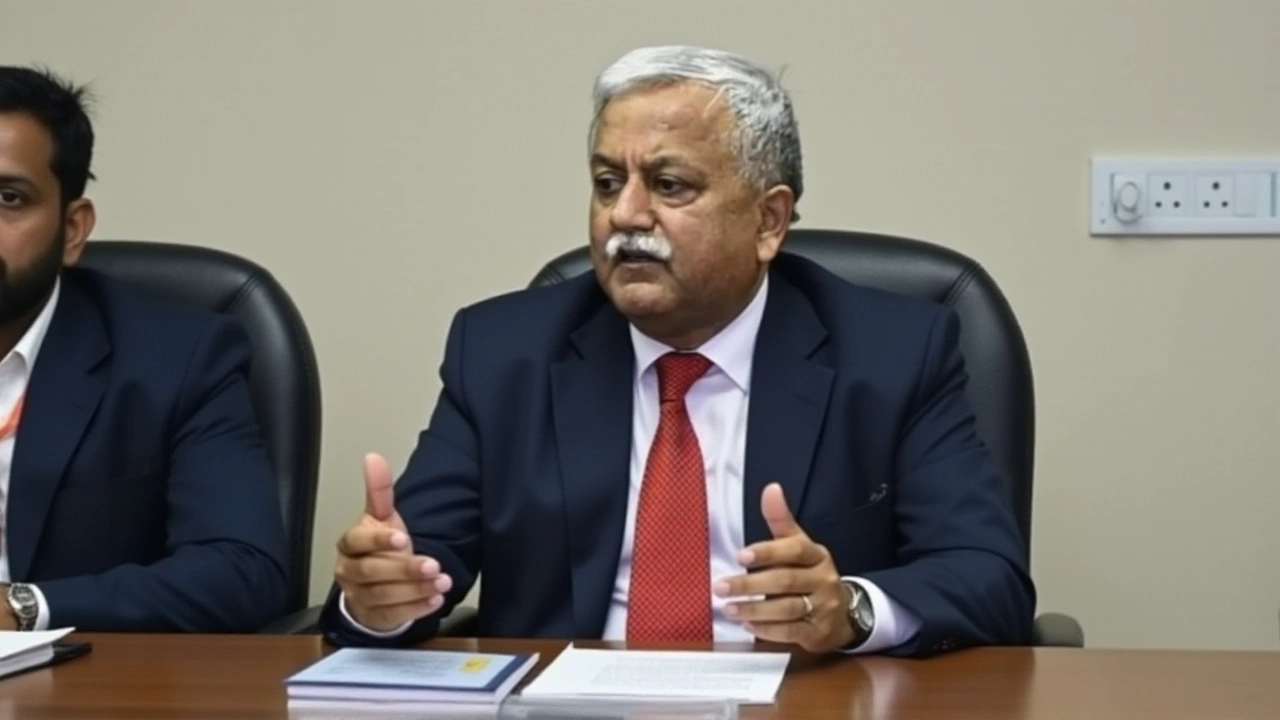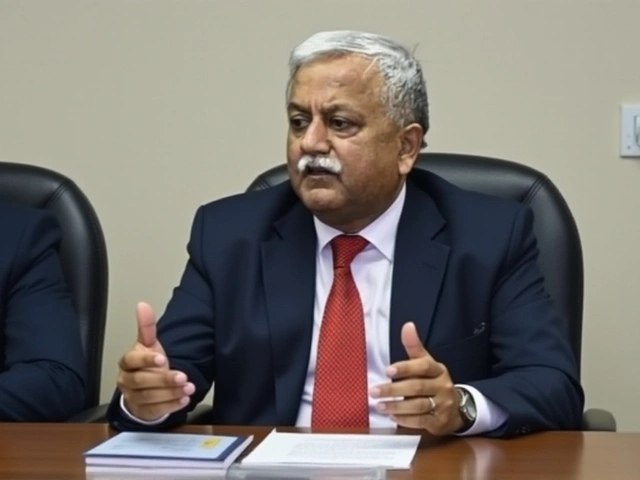When Ashok Khemka, an IAS officer from Haryana Government was moved for the 56th time in early 2025, the move reignited a long‑running conversation about why India’s most diligent civil servants often end up as political pawns.
The story broke on September 8, 2025, when Khabargaon published a deep‑dive from Lucknow. The report catalogued four bureaucrats—Pradeep Kasani, Durga Shakti Nagpal, Avinish Kumar Awasthi and Khemka himself—who have repeatedly run afoul of politicians.
Why Transfers Matter: The Unwritten Rulebook
In India, a change of government typically triggers a cascade of postings. Officials who have earned a reputation for strict enforcement are often nudged to the secretariat, where the pace is slower and visibility lower. Conversely, officers who are perceived as ‘team‑players’ get prime assignments—public works, health or finance ministries—where they can shape policy.
Political scientists describe this as a form of "bureaucratic patronage". The practice dates back to the first post‑independence ministries and has only intensified as parties vie for control of resources. The effect is simple: a civil servant who refuses to bend the rules finds his career trajectory clipped, while those who toe the line climb the ladder.
Case Files: The Four Officers in Focus
Durga Shakti Nagpal—an IAS officer posted in Uttar Pradesh in 2013—ordered a crackdown on illegal sand mining in the Ganga basin. The operation upset powerful land‑lords and a few senior politicians. Within weeks she was transferred to a desk job in the state secretariat, a move many insiders called “the classic retaliation”.
Avinish Kumar Awasthi faced a similar fate. While heading the procurement wing in Noida, he uncovered irregularities in a multimillion‑dollar road‑contract award. After filing a report, he was slapped with a disciplinary notice and shifted to a peripheral department in Lucknow, effectively sidelining his investigative powers.
Pradeep Kasani remains the most opaque of the four. The Khabargaon piece notes several unexplained postings between 2015 and 2023, hinting at clashes with both the ruling Samajwadi Party and the opposition BJP, but official records stop short of naming a specific trigger.
And then there’s Khemka, whose very name has become a shorthand for “the officer who can’t stay put”. Since exposing a 2012 land‑mutation scam that benefitted Robert Vadra—son‑in‑law of Congress president Sonia Gandhi—he has been shuffled across four states, 56 times in total. Each transfer sparked protests from civil‑society groups and rulings from the Supreme Court of India, which repeatedly ordered his reinstatement.
The Uttar Pradesh Angle: Politics Meets Administration
Uttar Pradesh, India’s most populous state, is a hotbed for these battles. Former chief minister Akhilesh Yadav is on record saying he will "never forget" a certain IAS officer who, according to him, hampered his development agenda. While Yadav never named the official, insiders point to Durga Shakti Nagpal’s 2013 transfer as the likely reference.
State‑level politics in UP is notoriously volatile. When a new party takes power, a cadre of senior officers is often uprooted in a single day. The Khabargaon report points out that between 2012 and 2025, more than 120 senior IAS officers in the state were shifted, many within a fortnight of an election.

Judicial Intervention: The Supreme Court as a Safety Net
India’s highest court has, over the past decade, become a crucial arena for bureaucrats seeking redress. In 2024, the Supreme Court ruled that unjustified transfers violate the principle of administrative independence, setting a precedent that was later cited in Khemka’s 2025 petition.
Similarly, the court intervened in the case of IPS officer Pankaj Chaudhary. A September 27, 2025 podcast titled "Podcast With IPS Pankaj Chaudhary Administrative Corruption" highlighted how Chaudhary, after refusing a politically motivated order in Rajasthan, was dismissed, demoted and later reinstated following a court verdict.
Why It All Matters: The Ripple Effects
When diligent officers are moved or disciplined, the immediate impact is a slowdown in enforcement—illegal mining, land‑grabbing and contract fraud creep back in. Over the longer term, the message sent to the bureaucracy is chilling: compliance with the law may cost you your career.
Experts say this dynamic fuels public cynicism. A 2024 survey by the Centre for Policy Research found that 62% of Indians believe the civil service is “too subservient to political whims”. The lack of a stable, merit‑based career path also discourages talented graduates from joining the IAS or IPS.

Looking Ahead: Reform or Status Quo?
Recent parliamentary debates have hinted at reforms—fixed tenure for senior officers, a transparent transfer matrix, and a central grievance redressal cell. Yet, until a political party willing to cede some control over bureaucratic appointments comes to power, these proposals risk staying on paper.
In the meantime, officers like Khemka, Nagpal and Chaudhary continue to be the unwitting barometers of India’s democratic health. Their stories remind us that the battle over who wields power in Delhi, Lucknow or Ranchi is far from over.
- Key Fact 1: Ashok Khemka has been transferred 56 times in a 33‑year career.
- Key Fact 2: Durga Shakti Nagpal’s 2013 sand‑mining crackdown led to a secretariat posting.
- Key Fact 3: Over 120 senior IAS officers in Uttar Pradesh were shuffled between 2012‑2025.
- Key Fact 4: The Supreme Court’s 2024 ruling declared arbitrary transfers a breach of administrative independence.
- Key Fact 5: Public trust in the civil service dipped to a record low of 38% in a 2024 poll.
Frequently Asked Questions
Why do bureaucrats get transferred so often in India?
Transfers are a tool used by elected governments to align the bureaucracy with their policy agenda. Officers who enforce rules that clash with political interests are often moved to low‑visibility roles, while compliant officers receive coveted postings.
What legal protections exist for officers like Ashok Khemka?
The Supreme Court of India has ruled that arbitrary transfers violate the principle of administrative independence. Courts can order reinstatement and, in some cases, compensation, but enforcement depends on the political will of the incumbent government.
How does the situation in Uttar Pradesh compare with other states?
UP sees a higher frequency of transfers due to its large bureaucracy and frequent changes in ruling parties. States like Kerala and Tamil Nadu have historically maintained more stable postings, though they are not immune to political pressure.
What impact do these transfers have on public services?
When diligent officers are sidelined, enforcement of regulations—such as anti‑mining laws, land‑use policies, and procurement rules—weakens. This often leads to increased corruption, slower project delivery, and a decline in citizen confidence.
Are there any reforms on the horizon?
Parliamentary committees have proposed fixed tenures for senior IAS/IPS officers and a transparent transfer matrix. However, no legislation has yet been passed, and political parties remain divided over how much control they should retain over the bureaucracy.






